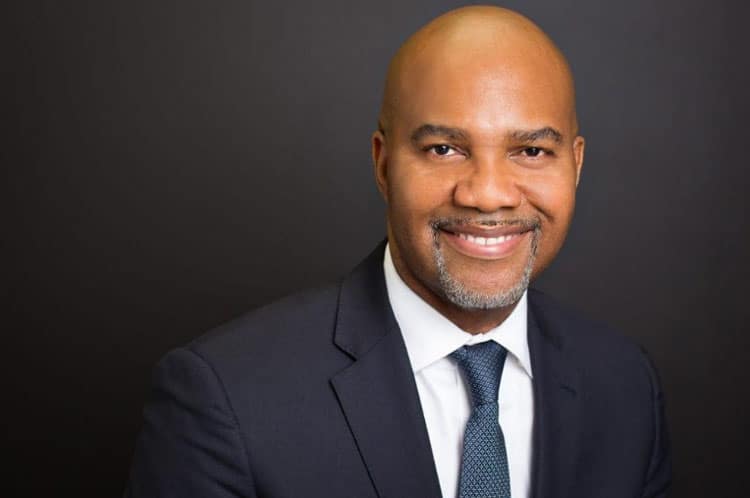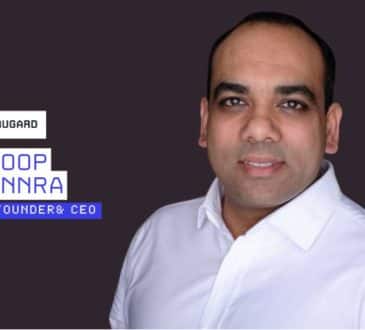An Exclusive Q&A with Finance Expert Douglas Eze: Unlocking the Secrets to Building Wealth, Reducing Taxes, and Making a Lasting Impact

In the ever-evolving landscape of personal finance and wealth management, it takes a skilled strategist to navigate the complexities and uncover innovative opportunities. Meet Douglas Eze, a distinguished finance expert and renowned wealth management advisor, whose expertise has revolutionized the way affluent families and individuals approach their financial journeys.
With a remarkable track record in helping clients build substantial wealth, minimize tax liabilities, protect assets, and create a lasting legacy, Douglas Eze has earned his place as a trusted authority in the realm of finance. His unique insights and practical strategies have captivated the attention of high-net-worth individuals seeking to secure their financial future while making a meaningful impact on society.
In this exclusive Q&A session, we hear Douglas Eze’s invaluable advice on a range of topics, including protecting family wealth as a business, passing wealth to the next generation in a tax-efficient manner, eliminating debt without sacrificing one’s financial well-being, and even the art of giving away money while generating more wealth. Prepare to be enlightened as Douglas Eze unravels the secrets behind successful financial management and shares his expert knowledge.
Q: What exactly is generational wealth, and why is it so crucial for individuals to understand and plan for?
Douglas Eze: Generational wealth is the wealth that transcends one’s own lifetime, continuing to benefit future generations long after the original wealth creator has passed away. It is the result of hard work, strategic planning, and astute asset-building. The last thing anyone wants is for their wealth to end up in the hands of the federal government through hefty estate taxes. To safeguard the fruits of your labor and ensure your loved ones benefit from your efforts, proper structuring and planning are essential.
Q: How can individuals ensure their generational wealth remains intact and is not eroded by estate taxes?
Douglas Eze: Protecting your family’s wealth requires a strategic approach akin to running a business. Think of your family as a business, with roles assigned to each member. Whether you’re married or single, establishing a structure is crucial. John D. Rockefeller’s mantra of ‘own nothing control everything’ holds wisdom in safeguarding wealth. Trusts serve as a powerful tool in this regard, with over 80 types available. The federal government recognizes trusts as legal entities, granting them the ability to undertake various actions. However, trusts require a trustee to make decisions. Estate planning, commonly associated with setting up living trusts, focuses on posthumous asset protection and probate avoidance. For comprehensive protection during your lifetime, wealth planning employs more intricate trusts. These trusts can own your businesses, shielding personal assets from potential lawsuits. By segregating personal and business assets through a family trust, you establish a strong line of defense. While entities like LLCs or corporations may offer some protection, they can still be penetrated, leading to the loss of personal and family assets. Adopting a trust-based approach helps mitigate such risks and safeguard your generational wealth.
Q: How can individuals pass on their wealth to the next generation in a tax-efficient manner?
Douglas Eze: When it comes to passing on wealth, it’s important to consider the implications of taxes and how they can erode the value of your assets. To minimize tax liabilities, it is crucial to establish an entity that continues to exist beyond your lifetime—a trust. Unlike individuals, trusts do not die and are not tied to a Social Security number. By ensuring that everything is connected to the trust rather than your personal identification, you can protect your wealth from unnecessary taxation.
Another important aspect is to minimize income tax. High-net-worth individuals like Warren Buffett and others often pay minimal income tax because they structure their finances in a way that limits their income. By not receiving income personally, they can avoid income tax altogether. And if there is no income, there is also no estate to be taxed upon their passing. This allows them to pass on wealth to the next generation in a tax-free manner.
Q: How can individuals eliminate debt without jeopardizing their financial well-being?
Douglas Eze: The key to eliminating debt without risking your financial stability lies in understanding the concept of leveraging other people’s money (OPM) to build wealth. While many people focus solely on making extra payments to pay off debt, wealthy families who are knowledgeable in financial matters prioritize simultaneously building wealth.
One effective strategy is utilizing cash value insurance, a concept often misunderstood by individuals. Insurance companies, particularly life insurance companies, possess substantial assets, often surpassing those of major banks. These institutions function as financial entities, lending money to individuals and paying interest on funds held within cash value products. Thus, they can extend loans to individuals for various purposes, including debt repayment, home construction, business startups, and more.
Challenging conventional wisdom, wealthy families understand that making extra payments on mortgages, credit cards, or car loans may not always be the most effective approach. This contradicts the information often disseminated by the media, banks, and even the government, as it gives them more control over individuals’ finances. By taking control of their wealth and keeping their money, individuals can ensure long-term financial stability.
Q: How can individuals give away money while also increasing their wealth?
Douglas Eze: Giving away money while simultaneously growing wealth is an exciting aspect that many of my clients find appealing. When considering non-profit organizations, such as the Salvation Army or Boys and Girls Club, these are indeed worthwhile recipients of charitable donations. However, the wealthy have a deeper understanding of the system and employ a different strategy.
In 1913, when the US government introduced taxes, affluent families like Carnegie and Rockefeller, as well as corporate families, began creating private family foundations. These foundations differ from public charities and are structured as trusts rather than corporations. By donating money to these foundations, individuals can avoid paying taxes on the donated amount.
But how do they make more money? It’s quite simple. Foundations can invest in businesses and properties, and when they sell these investments, they do not pay capital gains taxes. In some areas, non-profits are exempt from property taxes as well. By giving money to the right entity, individuals can not only give back but also increase their wealth.
Interestingly, the federal government supports this approach. They encourage private family foundations to donate to public charities on their behalf, as they cannot allocate resources to all these charities due to their focus on national security. Through grants, foundations can give away a minimum of 5% of the net donations they receive, with the remaining 95% available for other purposes.
Recap on our Q & A with Douglas Eze:
With a deep understanding of the intricacies of wealth management and an unwavering commitment to empowering his clients, Douglas Eze has cemented his position as a trailblazer in the field of finance. His innovative approach, rooted in a comprehensive understanding of trusts, insurance, and strategic giving, offers a fresh perspective that challenges conventional wisdom.
As readers absorb the wisdom shared by Douglas Eze, it is clear that the journey to financial prosperity is a dynamic one. Through meticulous planning, informed decision-making, and a keen awareness of the ever-changing financial landscape, individuals can unlock new avenues to secure their wealth, minimize tax burdens, and create a lasting impact on the causes they hold dear. You can learn more secrets of the super wealthy in Douglas Eze’s book, Creating Generational Wealth: What the Super Wealthy Know That You Need to Know.
Have you read?
The highest-paid tech CEOs in the United States.
Highest-Paid Biopharmaceutical CEOs in the United States.
Executive Pay: Top 8 Highest-Paid Hotel CEOs.
Openly LGBTQ CEOs at the helm of major global companies.
Top countries that admire their CEOs and other C-suite leadership teams the most.
Bring the best of the CEOWORLD magazine's global journalism to audiences in the United States and around the world. - Add CEOWORLD magazine to your Google News feed.
Follow CEOWORLD magazine headlines on: Google News, LinkedIn, Twitter, and Facebook.
Copyright 2025 The CEOWORLD magazine. All rights reserved. This material (and any extract from it) must not be copied, redistributed or placed on any website, without CEOWORLD magazine' prior written consent. For media queries, please contact: info@ceoworld.biz











